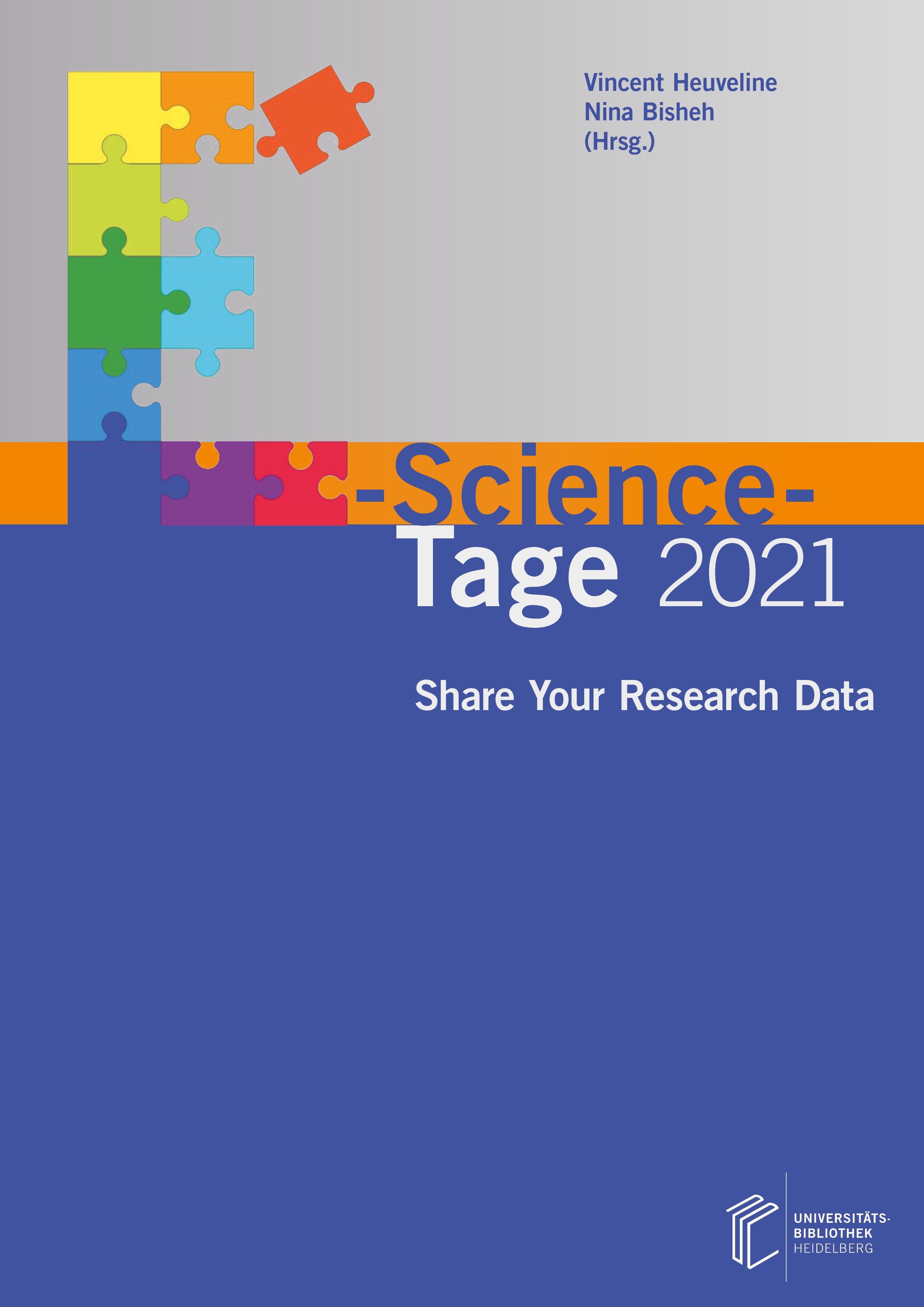Zitationsvorschlag
Lizenz (Kapitel)

Dieses Werk steht unter der Lizenz Creative Commons Namensnennung - Weitergabe unter gleichen Bedingungen 4.0 International.
Identifier (Buch)
Veröffentlicht
Institutional research data management. Findings from the development and introduction of holistic research data management tools
More and more research institutions commit themself to follow data policies when managing their research data. With these policies, they aim to make their research data discoverable, accessible, interoperable and reusable. To support the implementation of these so-called FAIR principles, a suitable technical infrastructure is required. To provide such an infrastructure technical tools that enable easy metadata capture and facilitate research data management are needed. Although tools have already been developed to that end, there is still a lack of integrated platforms that cover the entire lifecycle of research data. Here we present a prototype of such an integrated platform and describe our learning’s from the implementation of this platform at the Robert Koch Institute. In contrast to previously developed tools, our platform, the DataLinker, captures few data by itself, but mainly connects existing tools and services. More specifically, the DataLinker integrates metadata collected from adjacent systems such as the Research Data Management Organiser (RDMO). This integrated metadata is then linked to all research data associated with a project. This low-threshold approach allows for an easy management of research data at any stage of development. By providing a search interface and contact information, the DataLinker allows research data to be easily located, shared and reused. We developed the platform to support researchers throughout the research data lifecycle. To do this, we worked closely with researchers during development, requesting and implementing their feedback. However, as we rolled out the platform, we found that requirements to such a platform go beyond the perspective of the researchers’ data management needs. More specifically requirements from the perspective of an individual researcher are fundamentally different to the requirements when handling research data in an institutional context. For a platform to actually be used, it has to demonstrate clear added value besides its benefits to research data management. These benefits have to encompass not only the researchers but also the institutional service providers perspective. Providing benefits to the processes of these service providers, such as the IT department, legal department and the data protection office, are significantly relevant to the acceptance of such a platform. Our work shows how project and research data processes are intertwined and cannot be considered independently. Therefore, platforms for simple research data management need to integrate and map both processes. We conclude that researchers need to be supported in both areas to enable them to follow institutional data policies.



